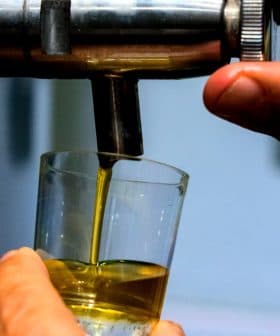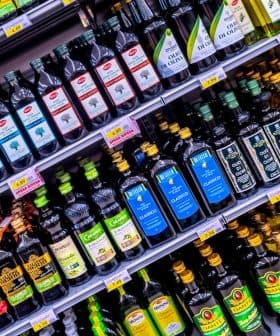Spanish Cooperatives Meet in Córdoba
Major Spanish cooperatives gathered early this week to discuss the strengths and weaknesses of their collaboration as well as estimated production.
Major Spanish cooperatives met in Córdoba to discuss collaboration and projected production estimates, agreeing that joining forces to manage the supply chain and market products is essential for competitiveness. The cooperatives, including Dcoop, Jaencoop, and award winners Almazaras de la Subbetica, Oleoestepa, and Olivar de Segura, produce close to 465,000 tons of olive oil annually, with Andalusia expected to have an exporting advantage this harvest due to lower production decreases compared to other countries.
Major Spanish cooperatives gathered early this week in Córdoba at the technical meeting for the Agro-Alimentary Cooperatives of Andalusia to discuss the strengths and weaknesses of their collaboration as well as the year´s projected production estimates.
During the meeting, all of the attending cooperative representatives agreed that in order to achieve a competitive edge they must join forces and work on tactics to best manage the supply chain and strategies to market their products. By doing so, they believe they will be better prepared to defend interests and grow sales. However, they also admitted that they needed to work on how to best collaborate. With more cooperatives, come more opinions. There has already been some disaccord and a few members have been lost.
Large cooperatives present during the meetings included Dcoop, Jaencoop, and NYIOOC award winners Almazaras de la Subbetica, Oleoestepa, and Olivar de Segura.

Álvaro Olavarría, the general director of Oleoestepa offered advice from decades of his company´s dedication to reach high production capacities that are able to respond to export demands.
José Luis García, general director of Olivar Segura pointed out that it is necessary to continue to inform consumers on olive oil characteristics and varieties. The Interprofesional del Aceite de Oliva Español has and will continue to work on this goal with international campaigns.
Together these cooperatives produce close to 465,000 tons of olive oil each year, 37 percent of the national production and 17 percent of the global total.
Cristóbal Gallego, the representative of the Agro-Alimentary Olive Oil Cooperatives of Andalusia and the president of the Córdoba Federation, reported that this harvest year´s oil yields have demonstrated a 2- to 3‑point drop since the previous campaign.
He went on to confirm Andalusian estimates of production to be around 1,108,000 tons and a national average of between 1,300,000 and 1,350,000 tons. Although they are a bit short, he remarked that these numbers fall into the minimum limit needed to respond to demands and ensure a stable market.
World production has seen a 7 percent decrease attributed to lower yields in Italy, Greece, Portugal, Tunisia, Syria and Morocco. With a lower decrease compared to the world average, Spain and, even more so, Andalusia will find itself with an exporting advantage this harvest.









